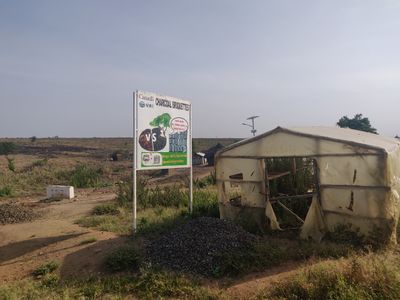Click here to register!
Difference between revisions of "Making Markets Work – Models for Private Sector Engagement in Humanitarian Energy"
***** (***** | *****) m |
***** (***** | *****) m |
||
| Line 24: | Line 24: | ||
'''Duration''': 2.5 hours | '''Duration''': 2.5 hours | ||
| − | + | = Session 1= | |
<p style="text-align: center">'''<span style="color:#000000"><span style="font-size: 15px">Private sector engagement in humanitarian energy 101: ‘The need, the obstacles, and the opportunity’ </span></span></p> | <p style="text-align: center">'''<span style="color:#000000"><span style="font-size: 15px">Private sector engagement in humanitarian energy 101: ‘The need, the obstacles, and the opportunity’ </span></span></p> | ||
This session gives an overview about the need for private sector engagement in humanitarian energy. It also discusses challenges and opportunities faced by various stakeholders within the humanitarian energy ecosystem. The panel will comprise leaders from Shell, Mercy Corps, and IFC lighting global. | This session gives an overview about the need for private sector engagement in humanitarian energy. It also discusses challenges and opportunities faced by various stakeholders within the humanitarian energy ecosystem. The panel will comprise leaders from Shell, Mercy Corps, and IFC lighting global. | ||
| − | + | = Session 2 = | |
| − | + | <p style="text-align: center">'''<span style="color:#000000"><span style="font-size: 15px">Speaking from experience: ‘Private sector learnings from engaging in humanitarian energy’ </span></span></p> | |
| − | == | + | Schneider Electric , XX and YY will share the reasons why they engaged in displacement settings, the opportunities and challenges in this regard, and advise for other energy enterprises looking to engage in these markets. |
| + | = Session 3 = | ||
| + | <p style="text-align: center">'''<span style="color:#000000"><span style="font-size: 15px">• Session 3: Collaboration models to develop energy markets: ‘Market-based approaches’ vs ‘Procure and distribute’ </span></span></p> | ||
| + | A discussion between energy enterprises and humanitarian agencies around collaboration models that can accelerate private sector engagement within humanitarian settings. Representatives from UNHCR, Mercy Corps, Endev, and BBOX will discuss the pros and cons of two main collaboration models. | ||
<headertabs></headertabs> | <headertabs></headertabs> | ||
Revision as of 07:18, 19 April 2021
Making Markets Work | Models for Private Sector Engagement in Humanitarian Energy |

Worldwide, there are around 3 million displaced households living in camps, most of them living more than four years in such settlements. 80% of them have no or only a little access to energy for lighting and cooking. They rely on torches, kerosene candles and inefficient traditional stoves or three-stone fires for cooking. To cover their energy needs they spend an average of 170 USD per year. This 1.6 billion USD market is expected to grow. At the same time, there is momentum in the humanitarian sector to create a more enabling environment for private sector collaboration.
So the question is: How can the private sector be stronger engaged in humanitarian energy markets? What are the lessons learnt so far, and which market models exist?
GPA, GOGLA, Shell, Dalberg, Mercy Corps and IFC warmly invite you to a dialogue series on public-private partnerships in humanitarian energy. In three panel sessions, a wide range of experts will share their knowledge, expertise, and learnings. Register now!
Register here: https://attendee.gotowebinar.com/register/1815764702764628752
When: Wed, 19 May
Time: 9:00am NYC | 2:00pm London | 4:00pm Nairobi | 6:30pm Mumbai | 7:00pm Dhaka (check your local time)
Duration: 2.5 hours
Session 1
Private sector engagement in humanitarian energy 101: ‘The need, the obstacles, and the opportunity’
This session gives an overview about the need for private sector engagement in humanitarian energy. It also discusses challenges and opportunities faced by various stakeholders within the humanitarian energy ecosystem. The panel will comprise leaders from Shell, Mercy Corps, and IFC lighting global.
Session 2
Speaking from experience: ‘Private sector learnings from engaging in humanitarian energy’
Schneider Electric , XX and YY will share the reasons why they engaged in displacement settings, the opportunities and challenges in this regard, and advise for other energy enterprises looking to engage in these markets.
Session 3
• Session 3: Collaboration models to develop energy markets: ‘Market-based approaches’ vs ‘Procure and distribute’
A discussion between energy enterprises and humanitarian agencies around collaboration models that can accelerate private sector engagement within humanitarian settings. Representatives from UNHCR, Mercy Corps, Endev, and BBOX will discuss the pros and cons of two main collaboration models.
<headertabs></headertabs>
Organizers



















